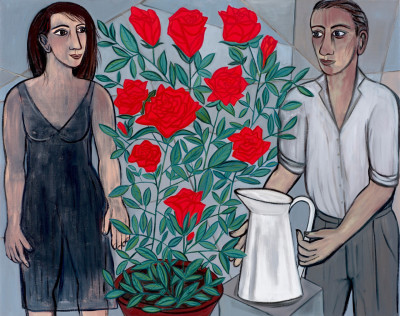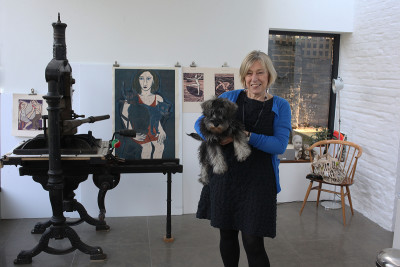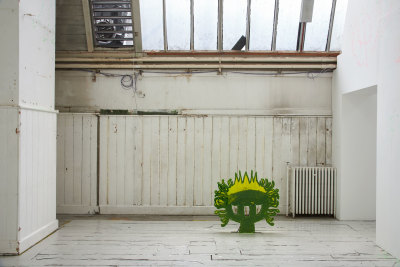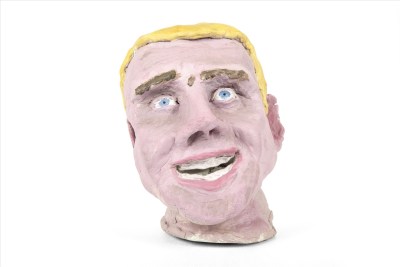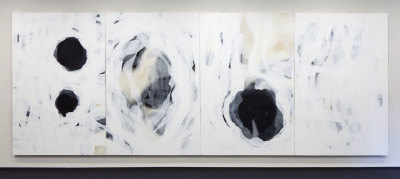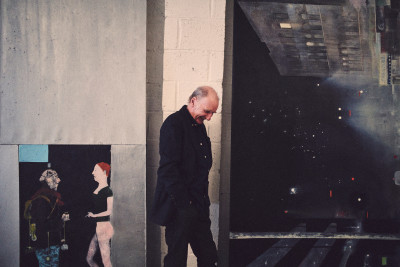Eileen Cooper: “Artists love to say they’re unique. We’re not”
Eileen Cooper: “Artists love to say they’re unique. We’re not”
As I see it
By Alice Primrose
Published 6 June 2017
With two solo shows this year, her final months as the Keeper of the Royal Academy Schools and the job of coordinating this year’s Summer Exhibition, it’s a busy time for Eileen Cooper. In the latest in our ‘As I see it’ series, the artist talks bad reviews, good dogs, and what she’ll do once all this work is done.
-
Alongside her own artistic practice, Eileen Cooper has maintained a teaching career at institutions including Central St Martins, Royal College of Art and the Royal Academy Schools. She became an Academician and Keeper of the Royal Academy Schools in 2010, and is the coordinator of this year’s Summer Exhibition. Cooper has a solo exhibition, A Woman’s Skin at Wolfson Fine Arts until September 2017, and another, Till the Morning Comes at The Fine Art Society, opening in October 2017.
My head is full of stories.
Mythology, fairy tales, bible stories, fables and early special effects movies – they’re all part of my work even if it’s not obvious. I grew up on Jason and the Argonauts, The 7th Voyage of Sinbad, Ben-Hur, The Vikings… I don’t think they’re naff at all, but you do expect art to come from a different place. Even Paula Rego, who comes from a very high culture background, talks about Disney being hugely important to her.
Lots of people deserve the arts education we had in the 70s.
It was extraordinary, but it was the norm: you went to art school for free, with grants and travel awards. The RA Schools will always be free. If we weren’t run by artists we wouldn’t have held true to that, but we have to be really careful not to be smug. I always remind our students that they’re the lucky few.
I believe in thinking through making.
If I don’t know what to do in my studio – especially if it’s a bit empty in there, when I’m in between bodies of work, or have just had an exhibition – I’ll tidy up the paper and pens and inks. And I somehow find myself fiddling about with them. And that becomes a beginning and soon enough you have a piece of work.
After your first horrible review you have nothing to lose.
I don’t think pride is a good trait to have, and I don’t mind mine being dented. Once you’ve put everything you have into making the show, and some critic says something really nasty about it – there it is in print. And you know what? The world didn’t change. It didn’t make you a better or a worse artist. It says more about the critic than you or your work.
-
I always try to look spontaneous.
I’ll have five or six paintings and a few drawings on the go, and then suddenly I need to resolve them, but there’s so much fine-tuning in those last stages. It’s really hard to know when you’re finished; I probably over-finish most of them.
-
Am I proud of my working class roots?
I just think they’re a part of me. You have to make the best of what you’ve got. Had I been much more privileged I’m sure I would have made that work for me as well, but I wasn’t.
I’m very suspicious of people who don’t like dogs.
If I’ve got time, a walk with my Schnauzer Oscar is such a welcome break from the studio. I love the community of dog walkers you come across on a stroll through the park. Animals have always been a part of my work – my heart always beats when I see a little deer in a film or a nature programme. There’s something about that magical deer in the right lighting that I really, really connect with.
My studio at home has 33 years of paint on the floor.
Until my sons left home, there were usually bikes and skateboards parked in there too. They’d always be coming in wanting paints and brushes. My working life is part of the life I live – I’m not precious about shutting it off. I love being able to share my studio at the RA too; students have been up here writing essays when they needed a quiet space. I think of this space as an opportunity to invite people in.
Working in print means thinking in layers.
It helps to inform my paintings too. I know that something I do in painting might look dreadful, but it’s only a stage. It needs to dry and sit there a while. Working in print also gets you out of your lonely studio – you’re working with other people and exchanging amazing ideas.
Male colleagues said how brave I was
when I started my family while working at Central Saint Martins. How brave you are, that’s the end… No one talked about that incredible, intense experience that you find as a parent. Creativity and fertility became very interconnected in my work while my husband Malcolm and I were raising my sons.
-

Eileen Cooper, Till the Morning Comes, 2017.

Eileen Cooper RA, In the Moment, 2015.

Eileen Cooper RA, Midsummer Night, 2016.

Eileen Cooper, Ad Astra, 2011.
-
When you go to a museum, you bring all your baggage with you.
I often gravitate towards works that are already saying something I’m interested in, something I’m already dealing with. It’s about being receptive to what’s around you. I like to find imagery that clarifies my thoughts.
Now there’s a computer in my studio
I can’t get up and start work with an empty head anymore – I need a few hours clearing the decks. There’s something about the magic of materials though: once I’ve rolled up my sleeves I can switch off and concentrate on painting.
I’m not sure what my students think of my work.
To most of them, I’m a member of staff at the RA – my role as Keeper is about asking students how they are, what they’re up to, what they’re looking at, what they need. Hopefully as we get to know each other they’ll become more curious about my work and realise that it’s a major part of what I do, who I am. Occasionally they’ll say, and what are you doing?
I’m a lifelong Labour supporter.
I’ve been very engaged with this year’s General Election. I think we’re putting up a good fight.
-
I don't want to deal with the nakedness too much anymore; that's a different sort of intensity and you can’t fake it.
-
There’s a modesty creeping into my figures as I’ve got older.
It’s part of a changing approach to one’s self and physicality and sexuality. I don’t want to deal with the nakedness too much anymore; that’s a different sort of intensity and you can’t fake it.
Hard work can put you in the right place at the right time.
It’s important to remind yourself that without those hours of standing painting, scraping off, moving backwards and forward, picking up one piece, putting down another piece, squeezing out more paint, it doesn’t happen.
I’m looking forward to days when things can go horribly wrong.
After the Summer Exhibition, I’ll be stepping down as Keeper, then opening my solo show in October. After that it’ll be a new phase in my life. I’m anticipating it’ll be slower, more relaxed. I might allow myself to just go into the studio and open a book for a whole afternoon.
Artists love to say they’re unique.
We’re not. Everyone has so much shared experience.
-
A Woman’s Skin: Eileen Cooper RA is at Wolfson Fine Arts, Cambridge, until 24 September 2017.
Till the Morning Comes is at The Fine Art Society, London, 30 October – 28 November 2017.
-
Inside Eileen Cooper's studio

Sketches resting on an easel

Paintbrushes and pens

Paint tubes

Sketches resting on an easel

Artworks on the mantlepiece

Apron and easel

A pen pot – a gift from the artist Paula Rego, who said: "This is what it’s all about. You carry your burden on your back"

A place for printmaking

